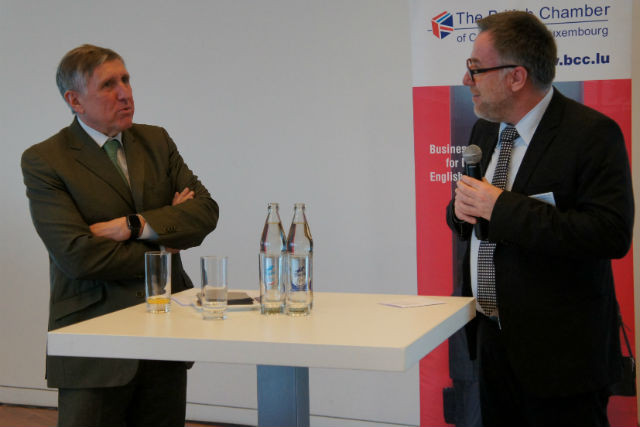Speaking at the British Chamber of Commerce’s first luncheon of the year, Bausch gave a brief history lesson explaining how little Luxembourg maintains an impressive influence on the international stage.
Among other things, it came down to being open-minded, diversifying and being quick to adapt, traits which he suggested were exemplified in Luxembourg’s strategy to mobility.
Transport fit for 21st Century
A country with a population of over 600,000 people and some 200,000 people travelling over the border daily to work in the country, transport issues impinge on lifestyle and the environment. But, in recent years the government has rolled out a number of congestion-easing tools such as the tram, launched in December 2017, carpooling applications and financial incentives for electric and hybrid plug-in vehicles.
This shift from “catching up” to “anticipating in terms of transport and mobility,” is distilled in a 15-year strategy for Luxembourg to shift to electric mobility while improving infrastructure, for example in extending the rail network.
Myth-busting
Not everyone at the lunch, hosted at the Table de Belvedere, was as sold on electric mobility as the minister. During the Q&A, two people raised questions concerning the sustainability of electric vehicle battery components and the energy advantages of switching from thermos-electric vehicles.
“Not everything you read in newspapers, or studies published by different lobbying groups, is the reality,” Bausch said. He suggested much of the smearing comes from manufacturers themselves, who wish to postpone the rush on electric vehicle demand until they have released their own models on the market.
Meanwhile, he reminded guests that the European Parliament voted a directive, for which Luxembourg energy minister Claude Turmes was rapporteur, to put in place a strategy to recycle electric vehicle batteries. “The efficiency of batteries is increasing dramatically,” he said, adding: “In 2-3 years it will no longer be a question.”
Renewable energy
Bausch pointed out that another advantage of going electric in Luxembourg was the ease of accessing electricity from renewable energy sources, which is guaranteed when people use Chargy charging stations. When charging from home, consumers also have an option with Luxembourg suppliers to switch to sustainable energy sources, he said.
“Other technologies will also come. But electric will be a very big part of it in the next century,” Bausch said.
